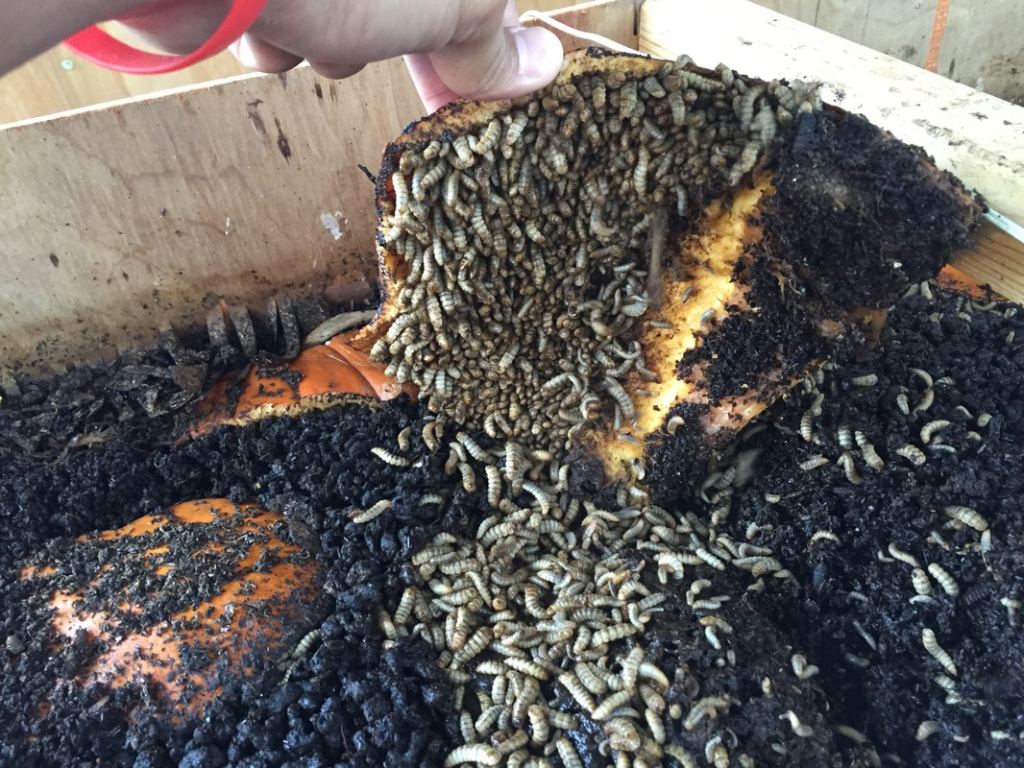 Brazilian researchers focus on the use of insects in animal feed and argue that insects offer advantages over soybeans, for example. A research team from the Federal University of Brazil Minas Gerais (UFMG) recently proved that insects have advantages over grain. Tests have shown that crickets, black soldier fly larvae and flour worms have levels of protein digestibility, similar to soy, but give more lipids (from 10 to 35%), vitamins and minerals.
Brazilian researchers focus on the use of insects in animal feed and argue that insects offer advantages over soybeans, for example. A research team from the Federal University of Brazil Minas Gerais (UFMG) recently proved that insects have advantages over grain. Tests have shown that crickets, black soldier fly larvae and flour worms have levels of protein digestibility, similar to soy, but give more lipids (from 10 to 35%), vitamins and minerals.
A study jointly conducted by UFMG and the Brazilian Agricultural Research Corporation (Embrapa) also investigated the effect of 'insect' feed on quails, fish and domestic animals. The results showed better feed conversion and higher meat quality, again due to the high levels of lipids in insects.
As for pigs, Diego Vicente da Costa, animal husbandry and UFMG professor, said that monogastric animals are basically insect-eating: "Efficiency is beyond doubt. We do not reinvent the wheel. Insects will surely give good results, but we need to evaluate specific indicators". The professor said that the inclusion of insects in the diet for piglets is more complete than a diet based on fish meal. Nutrient uptake and feed conversion were 18% better in piglets fed an insect-based diet. In addition, a diet containing black larvae larvae and larval meal plus the addition of dried flour worm to 6% in weaned piglet diets can replace soybeans without any harmful effects on the body of piglets.
"We will soon see the use of a large number of insects in the pig industry. It’s just a matter of time," Da Costa said. The researcher noted that the use of insects for feeding livestock is technically feasible, but is not currently cost effective in Brazil. Now there is only a small production, which can not meet the great demand from the poultry, pig and fish industries.
Recently, the Brazilian Ministry of Agriculture, Livestock and Supplies has been considering options for the production of insect flour for livestock. The UN report for 2014 identified more than 1600 edible insects suitable for consumption by humans and animals. Besides the fact that they have an impressive ability to reproduce, insects provide a high level of protein, healthy fats, vitamins, minerals, iron and calcium. Species such as moths, beetles, mosquitoes, grasshoppers, crickets and ants are the most sought after.
Source: kvedomosti.ru.

